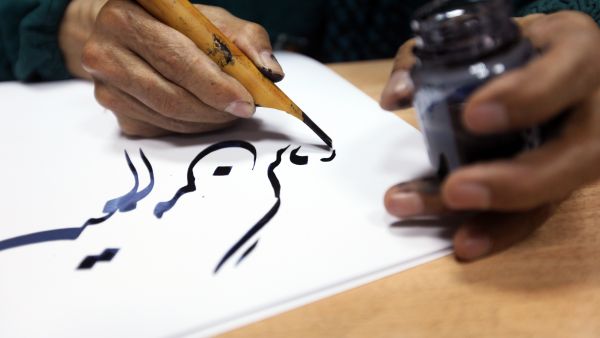Are the Arabs in fear of losing their Arabic language? Since the answer is regrettably a tough one to accept, the challenging issue here is to respond.
Everyone agrees the new generation lacks badly when it comes to Arabic, whether it be in grammar, written form, or just spoken Arabic. More painfully, many people find it simpler to express themselves in English than in their own Arabic language.
"A World Bank study reported last year that even by the time they are in their fourth year at school, many Arab children struggle to write a coherent sentence in Arabic." | @TheEconomist https://t.co/TCWsmRs0YI
— Ifeanyi UDDIN (@IfeanyiUddin) October 5, 2022
A literary variety of Arabic going to at least 1500 years ago, classical Arabic has its roots in the ancient Semitic languages. The Zabad inscription dates back to the year 512 and was the first evidence of the Arabic script.
The London-based Economist published an article recently on "Losing the language of the Koran" dwelling on how Arabic is being swamped by the English language, and how the majority of young Emiratis were communicating in that foreign tone. It argues that English is currently becoming the Gulf's primary tongue.
Arabic is one of the most successful languages in the world on paper it states. Over 400 million people speak it. But there are numerous dialects spoken across the Arab region. As English gains ground, Arabic's purity is being eroded by a certain lack of knowledge while many primary school students speak it in an English-Arabic mashup form.
English is the gravest threat. In 2017 the Arab Youth Survey, taken by a pollster in Dubai, found that Gulf Arabs already use it more than Arabic https://t.co/73fVTwTIcy via @TheEconomist
— Dr. Joseph Frusci (@_DrFrusci) October 1, 2022
The magazine goes on to quote an Arabic expert and a former British diplomat who alarmingly and depressingly says “within a century it may be a dead language”. Can that be true, surely not?
But one sign of Arab division is the fragmentation of Arabic itself in different societies. Parliaments, television programs, and publishing firms were once the last bastions of standard Arabic, but now a variety of dialects have crept in with their various vocabularies, syntaxes, and accents. Publishers are printing more books in dialect in order to increase circulation which is very worrying. In few cases the news is sometimes read in dialect by some television stations in Lebanon for instance.
How an Emirati is teaching the world her native Arabic dialect
— Gulf News (@gulf_news) January 15, 2022
Rising popularity of Hanan Al Fardan’s videos indicate great interest in Emirati Arabichttps://t.co/EcIgyv1gFw
As well a sizable chunk of the Arab populations, particularly the young ones prefer to acquire their news from social media platforms and these are frequently in dialects written in Latin letters because television news networks still only transmit in standard Arabic. Disney now adds an Egyptian accent to their movie subtitles.
Champions of Arabic are making an effort to retaliate. Of course, Arabic will continue to be the language of the Koran. The Living Arabic Project, an internet platform that works to resuscitate the language, was started by Hossam Abouzahr. “We think Arabic is more living than Latin because of its presence in the media, sermons, and speeches,” he says. He remarks with hope that “Latin survived in the churches for centuries despite having no native speakers.”
Have you heard of the "Living Arabic Project", an app that has dictionaries for Egyptian, Levantine, and Classical Arabic, and helps you teach the language!https://t.co/TYRXXEGOPy#SpeakArabic #TeachArabic
— QFI (@QFIntl) May 13, 2022
Arabic therefore will never become extinct like the Phoenician or Aramaic because of the religion of Islam, which is taught to its adherents in the Arabic form, a language of the Koran. Hence learning contemporary languages like English and Mandarin is essential to the Gulf states' economic prosperity, but so is preserving a sense of national identity, tradition, religion and culture which in the final analysis depends on fluency in Arabic.
Written by Sondos Swed










